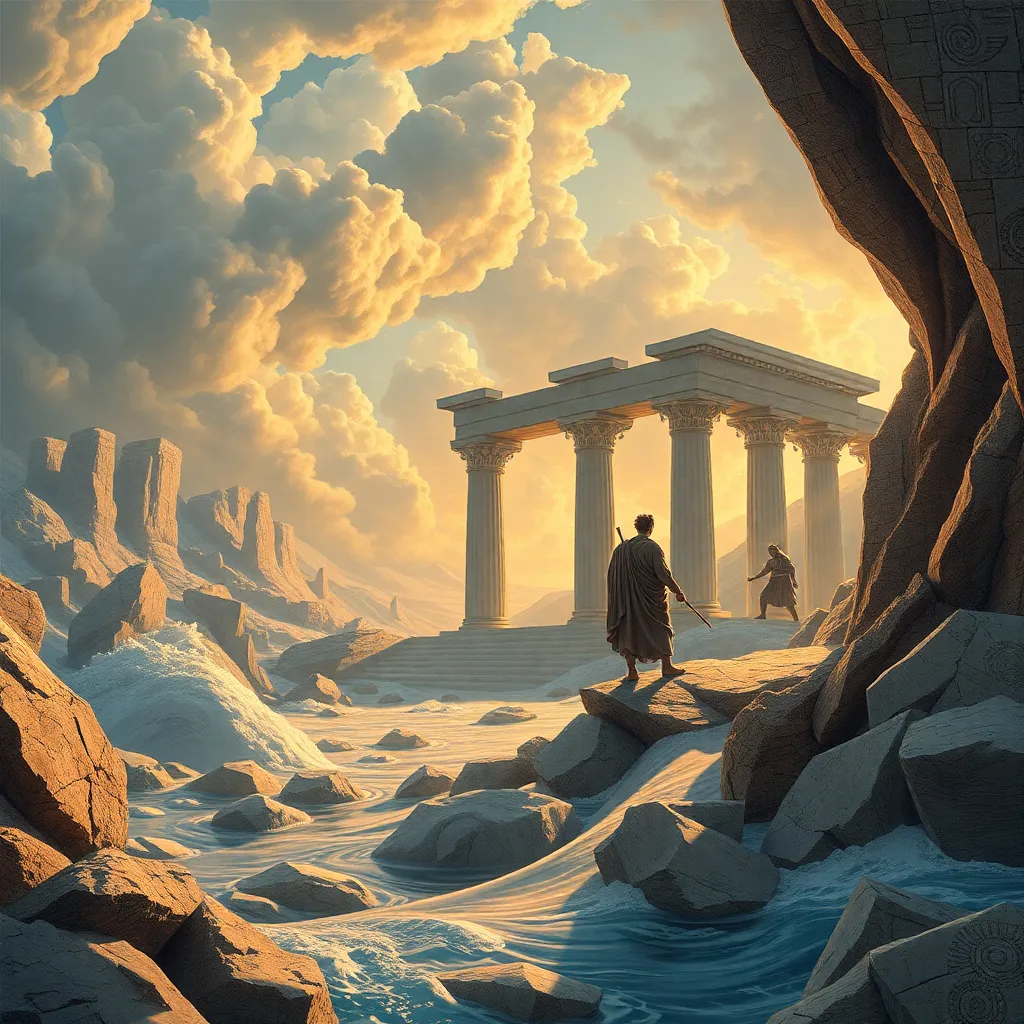The Odyssey’s Impact on Western Literature: A Legacy
I. Introduction
“The Odyssey,” attributed to the ancient Greek poet Homer, is one of the most celebrated works of literature in Western history. Composed in the 8th century BCE, this epic poem narrates the adventures of Odysseus as he embarks on a perilous journey home following the Trojan War. Its exploration of profound themes such as heroism, loyalty, and the quest for identity has captivated audiences for centuries.
The purpose of this article is to delve into the enduring legacy of “The Odyssey” and examine how it has shaped Western literature across various periods, influencing writers, poets, and thinkers throughout the ages.
II. Historical Context of “The Odyssey”
A. Origin and authorship of “The Odyssey”
<p"The Odyssey" is believed to have been composed by Homer, although some scholars debate the authorship due to the oral traditions prevalent during that era. It is thought to have been written down around the 8th century BCE, drawing from centuries of oral storytelling.
B. The role of oral tradition in its transmission
The poem’s origins in oral tradition are significant. Stories were passed down through generations by bards, who would recite them during gatherings. This oral transmission allowed “The Odyssey” to evolve, incorporating various regional elements, which ultimately contributed to its richness and depth.
III. Themes and Motifs in “The Odyssey”
A. Exploration of key themes
- Heroism: Odysseus exemplifies the archetypal hero, demonstrating bravery and cunning throughout his journey.
- Loyalty: The loyalty of Penelope and Telemachus stands in stark contrast to the disloyalty of the suitors, underscoring the importance of fidelity.
- Homecoming: The longing for home drives the narrative, symbolizing the universal desire for belonging and stability.
B. Recurring motifs
- Journeys: The physical and emotional journeys of Odysseus represent the struggles of life.
- Hospitality: The concept of xenia, or hospitality, plays a crucial role in the interactions between characters.
- Fate: The tension between free will and destiny is a recurring theme, raising questions about human agency.
IV. Influence on Classical Literature
A. Impact on ancient Greek and Roman writers
<p"The Odyssey" significantly influenced both Greek and Roman literature. Writers such as Virgil and Ovid drew inspiration from Homeric themes and narrative techniques. Virgil's "Aeneid" mirrors Odysseus's journey through the character of Aeneas, showcasing the impact of Homer's work on epic storytelling.
B. The role of “The Odyssey” in shaping epic poetry conventions
The structure, style, and themes of “The Odyssey” have established conventions that define epic poetry. Its use of in medias res, or starting in the middle of the action, as well as the presence of divine intervention, have become hallmarks of the genre.
V. “The Odyssey” in the Medieval and Renaissance Eras
A. Adaptations and reinterpretations during the Middle Ages
During the Medieval period, “The Odyssey” was translated and adapted into various languages. Its themes resonated with the chivalric ideals of the time, leading to new interpretations that emphasized valor and honor.
B. Influence on Renaissance literature and humanist thought
In the Renaissance, “The Odyssey” experienced a resurgence of interest, aligning with the humanist movement’s focus on classical texts. Writers like Dante and Shakespeare drew from its themes and character archetypes, reinforcing its relevance in the context of human experience.
VI. Modern Interpretations and Adaptations
A. The Odyssey’s presence in contemporary literature
Today, “The Odyssey” continues to inspire contemporary writers. Its themes of adventure and the pursuit of identity resonate with modern audiences, resulting in numerous retellings and adaptations across various genres.
B. Various adaptations in film, theater, and other media
- Film: Movies like “O Brother, Where Art Thou?” create modern parallels to Odysseus’s journey.
- Theater: Stage adaptations often explore the emotional depth of the characters.
- Literature: Novels such as “The Penelopiad” by Margaret Atwood offer new perspectives on the story.
VII. The Odyssey’s Role in Literary Theory and Criticism
A. The significance of “The Odyssey” in literary criticism
“The Odyssey” has become a foundational text for literary criticism, serving as a touchstone for discussions about narrative techniques and character development. Its rich symbolism and complex character arcs invite analysis from various theoretical perspectives.
B. Its contributions to discussions of narrative structure and characterization
The poem’s nonlinear narrative and multifaceted characters have prompted scholars to explore concepts such as unreliable narration and the development of heroism. These discussions continue to shape literary theory today.
VIII. Conclusion
In summary, “The Odyssey” stands as a monumental work that has profoundly influenced Western literature. Its themes of heroism, loyalty, and the quest for home resonate across time, while its narrative structure has shaped the conventions of epic poetry.
Reflecting on its ongoing relevance, it is clear that “The Odyssey” will continue to inspire and challenge contemporary audiences, proving that the journey of Odysseus is not merely a tale of the past, but a timeless exploration of the human experience.




